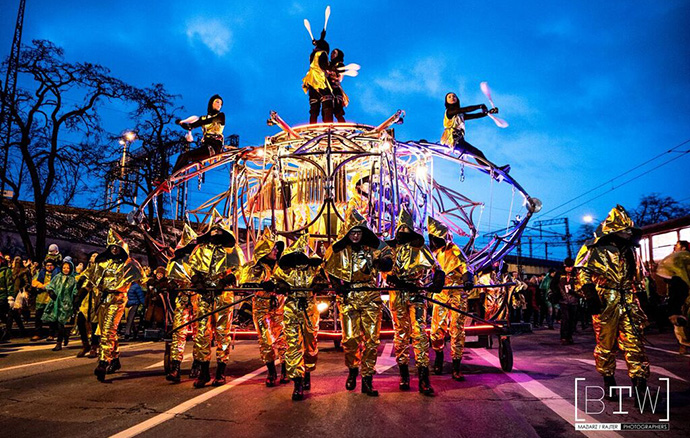
Jan. 24, 2019, 11:22 a.m.
European Capitals of Culture
European Capitals of Culture is a prestigious and international one-year long programme which is focusing on cultural diversity and values in European countries. It has been launched by the former Greek Minister of Culture Melina Mercouri in 1985. The European Capitals of Culture has great importance to cities’ developments on the cultural, social and economic area since this date.
This programme aims to gain awareness to discover the cultural richness and reveal the cultural diversity of the European countries. It brings a new perspective to common heritage and history due to diversity. Also, it can develop to intercultural dialogues between the selected countries citizens’ and open to Europe’s different cultures from all corners of the world.
The list of the European Capitals of Culture are as follows:
1985: Athens (Greece)
1986: Florence (Italy)
1987: Amsterdam (Netherlands)
1988: West Berlin (West Germany)
1989: Paris (France)
1990: Glasgow (United Kingdom)
1991: Dublin (Ireland)
1992: Madrid (Spain)
1993: Antwerp (Belgium)
1994: Lisbon (Portugal)
1995: Luxembourg (Luxembourg)
1996: Copenhagen (Denmark)
1997: Thessaloniki (Greece)
1998: Stockholm (Sweden)
1999: Weimar (Germany)
2000: Reykjavík (Iceland), Bergen (Norway), Helsinki (Finland), Brussels (Belgium), Prague (Czech Republic), Krakow (Poland), Santiago de Compostela (Galicia, Spain), Avignon (France), Bologna (Italy)
2001: Rotterdam (Netherlands), Porto (Portugal)
2002: Bruges (Belgium), Salamanca (Spain)
2003: Graz (Austria)
2004: Genoa (Italy), Lille (France)
2005: Cork (Ireland)
2006: Patras (Greece)
2007: Luxembourg (Luxembourg) — Sibiu (Romania)
2008: Liverpool (United Kingdom) — Stavanger (Norway)
2009: Linz (Austria) — Vilnius (Lithuania)
2010: Essen (Germany) — Pécs (Hungary) — Istanbul (Turkey)
2011: Turku (Finland) — Tallinn (Estonia)
2012: Guimarães (Portugal) — Maribor (Slovenia)
2013: Marseille (France) — Kosice (Slovakia)
2014: Umea (Sweden) — Riga (Latvia)
2015: Mons (Belgium) — Plzen (Czech Republic )
2016: Donostia – San Sebastián (Spain) — Wroclaw (Poland)
2017: Aarhus (Denmark) — Paphos (Cyprus)
2018: Netherlands — Valetta (Malta)
2019: Italy – Bulgaria
Sources:
https://ec.europa.eu/programmes/creative-europe/actions/capitals-culture_en
http://uneecc.org/european-capitals-of-culture/history/
https://www.avrupa.info.tr/tr/news/avrupa-kultur-baskentleri-30-yili-asan-bir-uygulama-4571
Tags
culture, europe, european, capital
